Can enamel cookware be washed in the dishwasher?
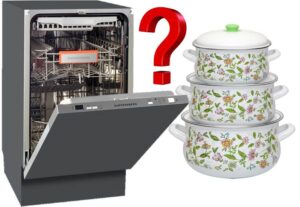 You need to understand that not all kitchen utensils can be trusted in the dishwasher. Some equipment products can easily become unusable. For example, you cannot load wooden utensils, aluminum and cast iron dishes, or crystal into the chamber. What if we are talking about enamel pans? Let's look into the nuances.
You need to understand that not all kitchen utensils can be trusted in the dishwasher. Some equipment products can easily become unusable. For example, you cannot load wooden utensils, aluminum and cast iron dishes, or crystal into the chamber. What if we are talking about enamel pans? Let's look into the nuances.
Will the enamel be damaged?
Washing enamel cookware in the dishwasher is permitted, but only if a number of conditions are met. Before loading into the dishwasher, be sure to check that the enamel is not damaged. If there are even small chips on the pan, it is better to refuse to use PMM.
Poor quality or damaged enamel will begin to rust after several washes in the machine.
If the dishes are intact, you can load them into the PMM. It is important to choose the appropriate washing mode. It is necessary that the cycle is short and the water heating is no more than 40°C. Too high a degree will be detrimental to the enamel.
The housewife should also take care when choosing a detergent. The composition should be gentle, without alkali and other aggressive components. The use of cleaning powders should be avoided.
Large enamel pans with a capacity of three liters or more should be placed in the lower compartment of the dishwasher, as they are quite heavy. Small ladles and saucepans can be placed in the upper basket, the main thing is to make sure that they do not cover the sprinkler.
Like any other kitchen utensil, enamel cookware should be prepared for loading into the dishwasher. Residues of food are first cleaned from the walls. If the bottom is “burnt”, it is better to fill the pan with water in advance so that it “soaks”.
"Stop list" for the dishwasher
Everyone understands that machine washing is more “aggressive” than hand washing. That is why not all items can be loaded into the dishwasher. Firstly, other household chemicals are intended for equipment, containing quite “strong” components that can ruin fragile materials. Secondly, the water temperature reaches 90°C - not all kitchen utensils can withstand this degree.
Let's figure out which dishes cannot be cleaned using a machine. This:
- items made of crystal, fine porcelain, items made to look like Khokhloma or Gzhel;
- earthenware, such as pots;
- ceramic saucepans without special protective coating - they easily “absorb” household chemicals and become toxic;
- Teflon coated cookware. After several washing cycles, such products will simply “peel off” and lose their non-stick properties;
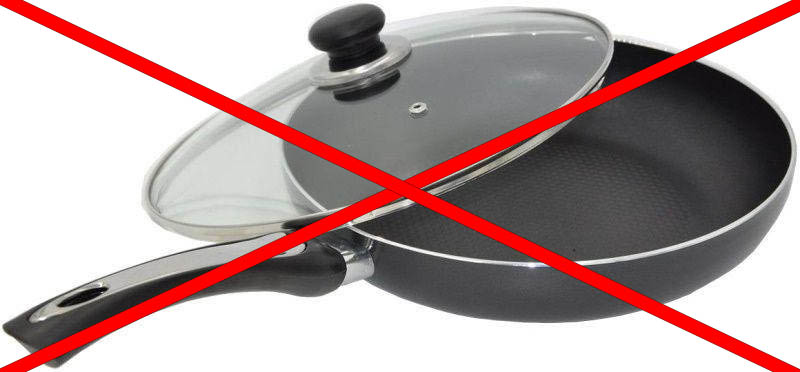
- containers from multicookers - only manual care is recommended for them;
- aluminum appliances. During the washing process, the protective film is torn off from the metal and it comes into contact with water. As a result of such processes, the dishes darken and become unsuitable for use in the kitchen;
- cast iron frying pans, bowls, cauldrons. In addition to the fact that heavy dishes can break the fastenings of the dishwasher baskets, the metal will also rust from prolonged contact with water;
- any wooden utensils - spoons, cutting boards, coasters;
- dishes with wooden or plastic handles.
It’s also worth saying which saucepans can be put in the dishwasher without fear of ruining them. This:
- stainless steel vessels;
- cast iron products coated with high-quality enamel;
- glass bowls intended for microwave ovens;
- modern expensive pans with protection applied to a non-stick coating.
Information about whether automatic washing is acceptable is indicated on the packaging or the bottom of the pan.
Therefore, when you buy a new saucepan or frying pan, study the packaging and inspect the bottom. The manufacturer must indicate how to properly care for the dishes. It also states whether it is permissible to load products into the dishwasher.
How to wash “forbidden” items?
If you don’t want to wash even some of the dishes with your hands, you can try to find a way out of the situation. Many materials are prohibited from being put into the dishwasher precisely because the water heats up to high temperatures. To avoid this being an obstacle, purchase a dishwasher with multiple modes. It is necessary that there is a short cycle with heating no more than 40°C.
The second obstacle is too aggressive detergents used in dishwashers. But even here it’s easy to find a way out - buy the most gentle cleaning composition based on natural ingredients. Now there is a huge variety of household chemicals on the market. Having fulfilled these two conditions, you will be able to load wood, porcelain, plastic, thin glass, and enamel into the PMM.
Cast iron cookware is most susceptible to prolonged contact with water. If your dishwasher has a short cycle, feel free to load a frying pan or saucepan into the appliance. It is important to immediately take out the product at the end of the cycle and wipe it dry. Then the appearance of rust on the metal can be avoided.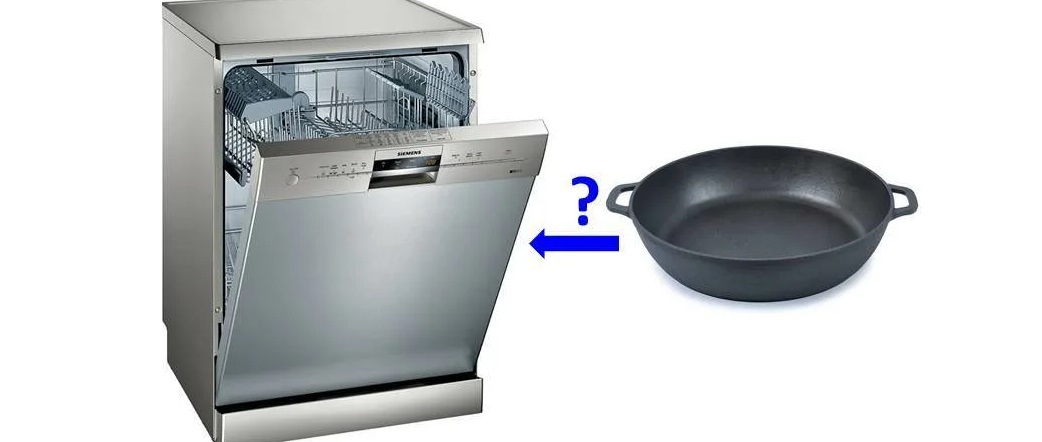
Teflon dishes and ceramic containers without a top protective layer can only be rinsed in the dishwasher. Moreover, in water heated to a maximum of 40°C. Or you can take a risk by running the shortest and “coldest” washing mode.
If the dishes are “burnt”, you should not think that the dishwasher will cope with dirt better than you. Such items must first be soaked in warm water, the remaining food and soot deposits must be removed with a sponge, and only then the items must be sent to the chamber.
Thus, enamel cookware can be cleaned in the dishwasher. The main thing is that the enamel is intact and of high quality. It is recommended to run a short cycle, heating the water to 40°C and using detergents without aggressive components.
Interesting:
Reader comments
- Share your opinion - leave a comment



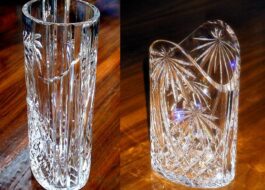

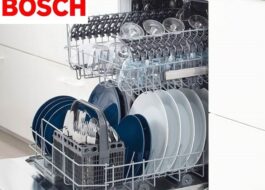



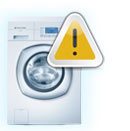
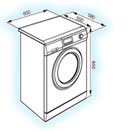


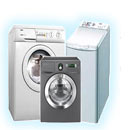
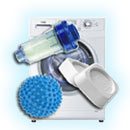


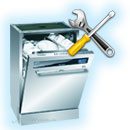
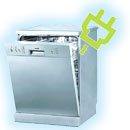
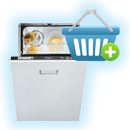
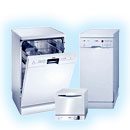
Add a comment